With the promotion of Parag Agarwal as CEO of Twitter, and the naming of Laxman Narasimhan as CEO of Starbucks, Indian-Americans have been the subject of news and commentary of late. Left-wing activists misidentified Agarwal as an upper caste Brahmin to score political points. Right-wing commentator Ann Coulter implied that Indian immigrants’ success was due to affirmative action, and at the expense of African-Americans. In 2021 a woke CEO went viral for calling Indian immigrants ‘parasites’ and recently, conservative anchors have waxed poetic about how English colonialism benefited India.
Like any other immigrant group, Indians came to America in search of a better life, and they’ve been successful at it. Indian-Americans are better educated, have better family stability, and higher incomes than any other immigrant group. We have succeeded in IT, academia, and business. Some of us have even reached high office in American politics.
With that success come the inevitable attacks on a community lacking in solidarity or political power in America. These attacks come from within, and from outside by rent-seeking political activists who see the Indian, and the Hindu communities as vulnerable targets which they can shake down for money and political power.
While most Americans view the Indian diaspora positively, political activists on the Left and Right do not. They see a community focused on academics, career, and family — ignorant of American political fault lines. Indians don’t see American history as uniquely evil or uniquely exceptional. We keep our head down and rarely participate in American political debates. Worst of all, we refuse to become foot soldiers in the new crusades that seek to transform America through woke activism or to make America great again.
Attacks on Indians and Hindus emanate as easily from the American college campus as on Fox News. ‘Holi against Hindutva’ events are created on campus to force Hindu students into participating in Left-wing politics. An Indian intern at NASA takes a picture of her room with idols of Saraswati and Lakshmi, inviting mockery and hatred from Left-wing Indians. A reality show on Netflix called ‘Indian-Matchmaker’ results in a hate-filled opinion piece from a Pakistani academic who sees Narendra Modi’s Hindutva embedded in the presence of Indian culture on American television.
A Penn Law professor says there should be less immigration from India because Indians immigrants are Brahmins, vote for the democrat party, and therefore hold anti-American views. An Indian writes an op-ed in the Atlantic, warning Americans that caste has ‘penetrated American workplaces, colleges, and communities, like tea from a tea bag’ while calling the Hindu diaspora ‘termites’ on her social media. I suppose we should feel proud that Indians can even outdo American racists when it comes to hating on our own kind.
While these issues have reached prominence in recent years, I assure you the underlying arguments are centuries old. From the late 19th century, American perception of India was created by reports of British missionary accounts of Hinduism. The word ‘juggernaut’ entered the American lexicon from a fake account by Claudius Buchanan, whose reports of the Jagannath Yatra included descriptions of Hindu devotees flinging themselves under the wheels of the chariot. After Swami Vivekananda’s visit to Chicago in 1893, Hinduism became a subject of interest for Americans. Some became pupils and devotees of Hindu teachers, resulting in an Orientalist image of the dark, cunning ‘Hindoo’ bewitching innocent white women of their money. The racial connotations were all too obvious to Americans of that time, taught to believe in a Darwinian hierarchy where the white race stood above all.
Early 20th century waves of immigration brought about the creation of the ‘Asiatic Exclusion League’ by Irish immigrant labourers to keep Asians out of the west coast of America. Editorials from San Francisco newspapers pointed to the caste system of the Hindu religion, reported that Indians were only coming to America to make money, and stated that it was impossible for such a fanatic, prejudiced people to become assimilated into American society.
If that mode of thinking sounds familiar, it should. It is precisely that language that is now being deployed to attack Indian immigrants’ success. The century old trope of the dark Hindu preying on white women has morphed into the fair-skinned upper-caste techie, secretly burning with hatred for low-caste Indians, all the while exploiting the multicultural fabric of America for his profit. For Right wingers, that same upper-caste Hindu uses his education and cunning to climb the corporate ladder, steals jobs from white Americans, and donates to anti-American causes.
Then as now, this animus against Indian Americans seems to imply a few things: that Indians come to America with secret biases of caste prejudice which prevents our assimilation into American society, and therefore our community’s success is undeserved and unearned. Left unchecked, our uncivilised beliefs will erode the social fabric of America. The only way to prevent America from the menace of caste is to treat Hindus and their culture as illegitimate and undeserving of minority status.
Now just remove the word Indian and Hindu from the previous paragraph and imagine that same conclusion being used against any other racial or ethnic group, and ask yourself how quickly one would be allowed to make that argument before being cancelled for racism? So why is it that Hindus get that special treatment, and made to feel ashamed of their own culture?
When it comes to caste, the Indian diaspora should have nothing to feel ashamed of. The rent-seeking narratives constructed by anti-Hindu activists have been debunked by a Bangladeshi-American researcher. In an article titled ‘America’s Fake Caste War’, Razib Khan notes that India’s communal and caste dynamics “do not and cannot apply [to America]”. In short, Hindu-Americans are 50 per cent of the small 1 per cent that makes up the Indian immigrant population. They are part of the melting pot of America, and even were they inclined to hold caste prejudice, the population of Dalits in America is “0.014 percent of the American population (1 out of 7,200)”. Ironically, the first time most Indians get asked about their caste is from woke White Americans eager to burnish their anti-racist credentials.
Much of the discussion around India and its people is framed around American history, politics, and biases. Narendra Modi is equated with former president Donald Trump, caste is equated with racial division in America, and Indian immigration or assimilation is just another talking point for nativists and open-borders activists alike. If Indian-Americans wish to stop being the punching bags for the political divide in America, they need to stand up for their community, have pride in their heritage, their culture, and for themselves. We have to present a unified front that engages with Americans on a bipartisan basis, rather than picking one party over another to satisfy short-term political interests. If the pathological discussions around Indians and Hindus are to end, they will end when the diaspora unites with confidence and says enough. We are not here to justify our existence. We are here to live lives of freedom and we don’t owe an explanation to anyone.
By:Anang Mittal
(The author is a public affairs professional living and working in Washington DC. He was previously an outreach manager at Google, and a staffer for Senate Majority Leader Mitch McConnell. He is a first generation immigrant from New Delhi, India. Views expressed are personal.)
Courtesy:First Post

Readers like you, make ESHADOOT work possible. We need your support to deliver quality and positive news about India and Indian diaspora - and to keep it open for everyone. Your support is essential to continue our efforts. Every contribution, however big or small, is so valuable for our future.

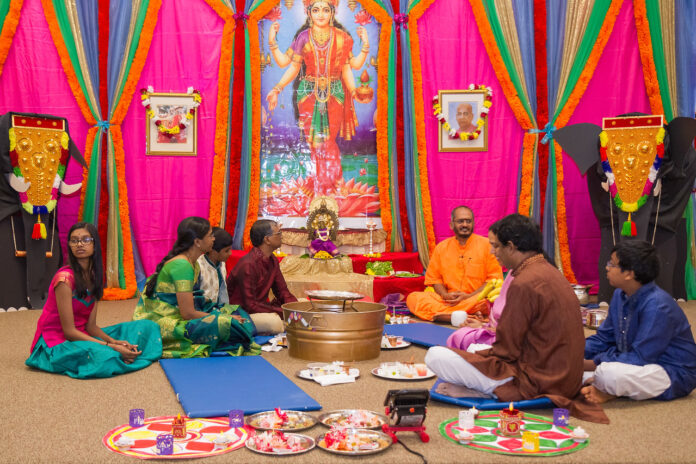
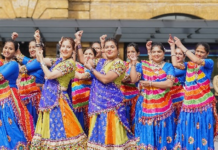
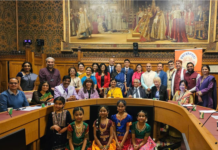
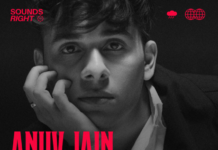
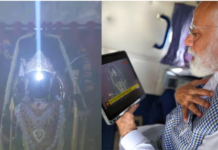
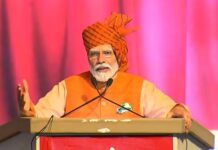
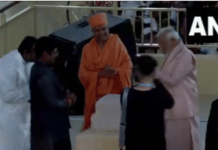




The fact that Abrahamic faiths all over the world have suddenly woken up to the great achievements of our unique and ancient religions which after centuries of persecution survived the onslaught is remarkable. In USA it is quite normal for a Hindu name to be associated with upper echelons of management of publicly listed companies. Journos on both sides of Atlantic find it difficult with seething jealousy of our boys and girls rapidly gaining positions of trust and naturally bring in divisive politics to justify their argument. There should be robust reply to such media time wasters or ‘fill the space’ clik baiting (no) good – doers rather than being quiet